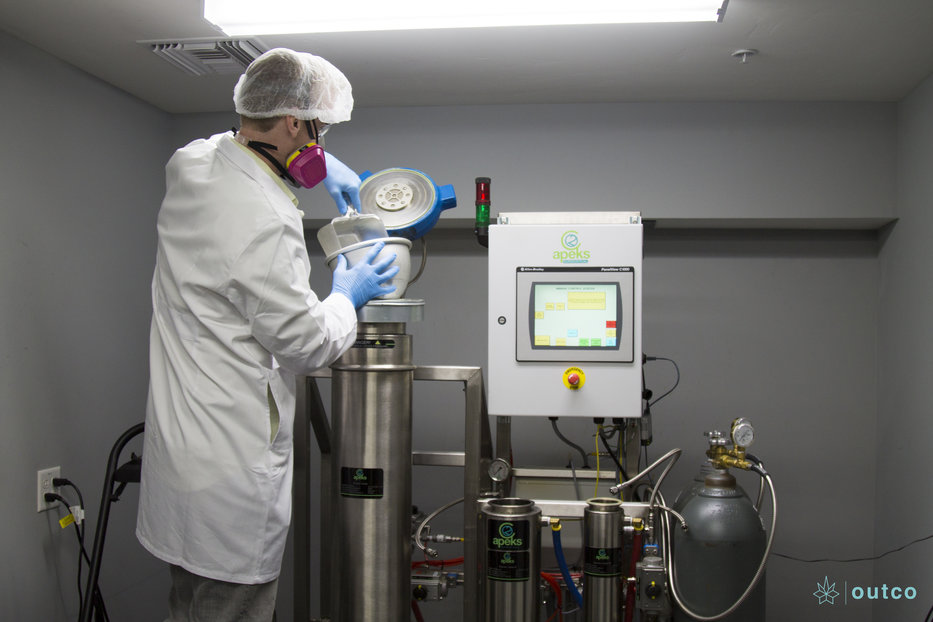If legal cannabis isn’t already a key facet of American culture, it is well on its way. The multibillion-dollar industry is already ubiquitous in politics, and consumers are increasingly seeing various types of marketing from cannabis brands, from billboards to magazine ads to organic content on social media. It may not be long before sports fans see more of their favorite athletes talking up CBD products for pain management or even see a dispensary chain claim naming rights for a stadium.
The next big marketing frontier for cannabis brands is professional sports sponsorships. And in some respects, it makes sense that athletes might be natural brand ambassadors for an industry focused on pain management and mental health relief. But there are obstacles unique to the highly regulated cannabis market that, paired with the already legality-heavy proposition of sponsorship deals, mean a long road ahead. Here are some key considerations for cannabis and CBD brands looking to a future of sports sponsorships.
The Current Climate
Many leagues have already embraced sponsorship deals with CBD brands, from NASCAR to the United Soccer League. The four pillar sports in the U.S.—the National Football League, the National Basketball Association, the National Hockey League and Major League Baseball—have already relaxed their rules and testing protocols related to athletes and cannabis. In 2019, the NFL reached an agreement with the players’ union to study the pain management benefits of cannabis and in 2020, the NFL announced players will no longer be suspended for positive tests and increased the threshold of allowable THC for positive tests. And stars like powerhouse tight-end Rob Gronkowski and former Denver Nuggets Al Harrington in retirement have attached their names to cannabis and CBD brands.
After dismal profits through the COVID-19 pandemic, the “Big Four” sports leagues may want to consider opening an entirely new sponsorship category via cannabis and CBD. Additional pressure might come from athletes themselves, who want alternative treatments for pain and anxiety. As the public looked in from the outside as the MLB negotiated a new collective bargaining agreement and as leagues renegotiate CBAs generally, player pressure could continue to move the needle on league acceptance of cannabis products.

As much as this means less stigma for cannabis, it also illustrates the constant fragmentation that makes it difficult for cannabis businesses to operate like other companies. While the NFL, NBA, NHL and MLB have all eased up on players’ use of the substance, they haven’t embraced CBD sponsorships the same way other leagues have and currently won’t allow their athletes to seek CBD or cannabis sponsorship deals as individuals. Piecemeal state legalization, strict advertising rules, enduring federal prohibitions and a lack of FDA approval are the biggest barriers specific to the cannabis industry. And, while the “Big Four” leagues are not signatories to the World Anti-Doping Agency (WADA) Code, applying their own anti-doping policies, don’t look for cannabis sponsorships or endorsements of Olympic sports or athletes any time soon—WADA prohibits in-competition use of cannabis, although it is conducting a scientific review of the status of cannabis in 2022, indicating a softening may be forthcoming.
Paired with the issues typical to sport sponsorships generally, cannabis companies have much more to consider when seeking sponsorship deals.
Threshold Sports Sponsorships Considerations Relating to Cannabis and CBD
As a threshold matter, if sports leagues are expecting to allow cannabis sponsorships in the future, they are likely waiting for federal approval for cannabis and specifically, FDA approval for CBD products. The agency decided not to allow companies to market full-spectrum CBD as a dietary supplement in August, and formal guidelines may be years away as medical and scientific data materialize either supporting or negating the health claims. In the meantime, companies and their spokespeople cannot claim certain health benefits in advertising without FDA approval.
Cannabis itself is also still a schedule 1 drug under the federal Controlled Substances Act and has historically been listed among most leagues’ anti-doping bans, although as discussed above, it appears attitudes might be beginning to shift. Even in states where adult use and medical cannabis are legal, taxes are high and advertising rules are incredibly strict. They also vary from market to market. When Connecticut legalized cannabis in 2021, state Attorney General William Tong moved to have all billboards advertising Massachusetts dispensaries removed for violating the state’s cannabis marketing restrictions. With a web of intersecting, and at times conflicting, state regulations at play, national marketing campaigns are highly challenging. The crisscrossing markets on game days and the national exposure of most athletes in the Big Four leagues will likely implicate multiple jurisdictions, and multiple sets of advertising regulations that don’t always mesh. And, even if a policy decision were made to allow some territory-restricted sponsorship deals in the cannabis space, it’s unclear if and how cannabis sponsors could exercise even local broadcasting rights—a key value driver for any sponsorship deal.
Specific Sponsorship Considerations Relating to Cannabis and CBD
In addition to the above, the host of legal and business issues generally applicable to sports sponsorships deals will likely take on a different flavor with respect to cannabis and CBD.
From a commercial perspective, one of the key issues in any sponsorship deal is whether a sponsor will receive exclusive rights in a category. It’s important that sponsors take a critical eye to how a league may have “sliced and diced” that category. For example, a would-be cannabis sponsor may not be expecting a competitor to take up rights in the CBD space. But without close attention to how the sponsorship category is defined, any oversight here could lead to sharing branding space with unwelcome neighbors.

In highly regulated industry categories such as gambling/casino and sports betting, league policies mandate strict compliance obligations on the part of the sponsor. We should expect to see a similar approach if leagues approve cannabis sponsorships. For example, in gaming and sports betting, league requirements often demand that sponsors notify the team or league of any compliance issues—no matter how nonmaterial, and no matter if they affect any rights or activities in the sponsorship territory. If there are compliance violations, leagues and teams typically demand immediate termination rights. The compliance and disclosure obligations for a highly regulated sponsor can be onerous, and sponsors risk losing their sponsorship investment even for trivial issues that do not bear on the sponsorship. For example, should a minor casino compliance violation in Las Vegas result in termination of a sponsorship deal in New York? Similarly, if a dispensary in Seattle operating under an interstate brand receives a de minimus fine for an inadvertent sale to a minor, should that result in termination of that brand’s sponsorship deal in Colorado? While these types of compliance and termination provisions are typically negotiable to something approximating fairness, look for leagues to take a hard-line stance on compliance issues, and expect that some teams may mandate deal terms that are take it or leave it.
Similarly, leagues and teams often demand strict morals provisions allowing them to terminate if they determine, in their sole discretion, that the sponsor or its activities might cause reputational harm to the team. Although cannabis is rapidly destigmatizing, one might argue that the industry is at least historically aligned with illegality and perhaps inherently aligned with other “sin” industries like gambling, alcohol and tobacco. Teams and leagues know what they are getting into when they accept sponsorship money from these industries, and cannabis sponsors should demand that any such “morals” provisions be exercised by teams only reasonably, in good faith, and with an opportunity for the sponsor to cure any alleged issues.
Further, just like gaming and sports betting operators, cannabis businesses are restricted from marketing to minors. While state laws are a hodge-podge, sales to individuals under the age of 21 are generally prohibited, and cannabis businesses are also generally restricted from marketing to individuals under the age of 21, or even from publishing marketing materials that appeal to children—a subjective standard. These rules, of course, are likely to restrict the type of signage and activation that can occur in stadia. It also poses issues from a digital marketing and data-sharing perspective. Sponsors and teams often negotiate specific activations via social media, websites and email marketing lists. But the parties must keep in mind compliance issues regarding these activations, including taking care to scrub relevant marketing databases of users under the age of 21 and, possibly, “self-excluded” individuals. The gaming industry is familiar with self-exclusion sign-ups, which permit individuals to opt out of relevant marketing and be disallowed from entering gaming establishments. The cannabis industry may not be far behind. In 2020, the Illinois General Assembly introduced HB4134, which if passed would have permitted self-exclusion from targeting mailings, advertising and promotions and from entry into dispensaries. While this bill died, it’s conceivable that we will see efforts to pass similar bills.
Finally, in 2020-21, sponsors, teams and leagues collectively, and regardless of industry, combed through the thorny issues of the COVID-19 pandemic. We can expect to observe a continuing trend of extra scrutiny paid to force majeure and so-called “make good” provisions for missed games or unavailable benefits.






